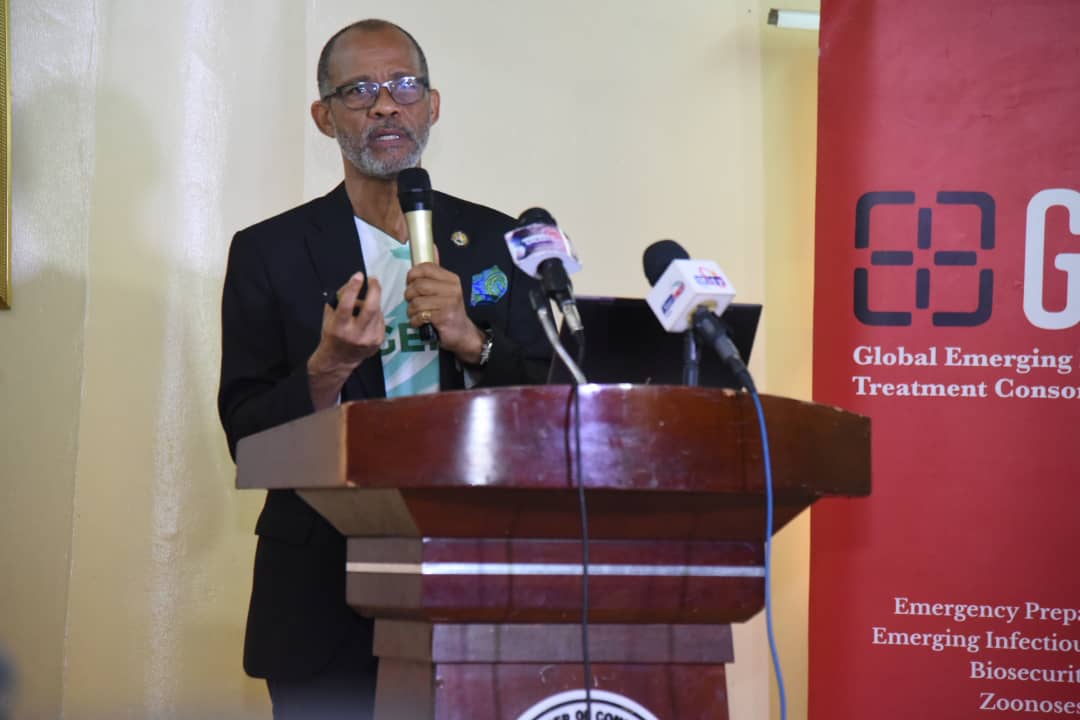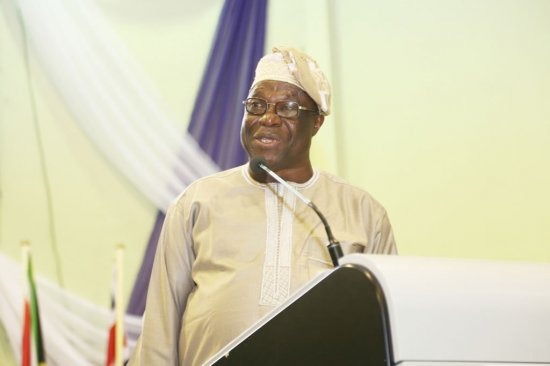By Sam Ifeanyi Nwosu
…Seeks to ensure total coverage in its strategic first phase.
…Residents Troop Out to Take Covid19 Vaccine….But not all are prepared!
Mrs. Adepoju Idowu, who is a health official working at a primary healthcare center at Ilasa, a suburb of Lagos, found out she suddenly started experiencing dizzy spells and pain in her eyes. But she was not worried. Because she had been told what to expect and was ready for it. The pain and dizzy spells, which brought about vertigo was an after effect of the Covid19 vaccine shot which she took a few days back.
But she would still take it again, if she had to repeat the shot. Quite happy to be among the list of over 120,000 Lagosians who have so far been vaccinated, she enthused, “At least I have peace of mind now and I am sure I will not be infected or infect anyone again”.
And this sentiment sums up the general attitude of a lot of respondents whom this reporter spoke to at different centers in Lagos over the ongoing covid19 vaccination exercise. She joins the over 120,000 Lagosians who have so far been vaccinated.

The Covid-19 pandemic came like a bolt seemingly out of nowhere and disrupted lives, livelihoods and changed the whole dynamic of society. Business places were shut down; markets were closed, states were on lockdown. Till date, the impact of the covid-19 pandemic on the substructure of daily life and the economy has not yet been quantified but its effect is seen and felt everywhere.
With the vaccination exercise comes a ray of hope that indeed, we are seeing the end of this vaccine and that its infectious propensity would be reduced and contained.
Lagos was the epicenter of the coronavirus in Nigeria and as the highest revenue generating community in Nigeria, the impact of the virus was keenly felt. And obviously that is why residents under the first phase of the vaccination exercise have trooped out willingly and in thousands to take the vaccination shot.
Trips to various centers noted that the whole exercise is being conducted as efficiently as possible. At the Primary Healthcare Facility in Ilasa, there were two vaccination points. Investigations reveal that it was deliberate for two reasons; to apply social distancing and manage the influx of people coming to get vaccinated and secondly, to be able to vaccinate as more people as possible. The same situation applied at the Agboju primary healthcare facility, another covid19 vaccination center. And it was apparently obvious that those undertaking the vaccination had been well drilled on the protocols to follow.

Once your turn comes, if you registered online, you submit your code which is checked and details confirmed. If you haven’t registered online, then a physical registration form is provided which one fills with all requested details. A code is then generated for you and a vaccination card, much like a hospital card, is given to you immediately after you are vaccinated. You are then told to come back and report if there are an y symptoms or effect you notice on you. The whole process for any one individual usually doesn’t take more than 15 minutes.
An important feature that boosts confidence is the fact that within the space of an hour or so, you receive an email and sms containing your vaccination details and your vaccination number. This was attested to by some residents around the centers visited who had received their shots. And their experiences make them great advocates to spread information on the vaccination shots and process.
But it’s not yet uhuru…
While Lagos state and its ministry of health would be commended for thorough distribution of the covid-19 vaccines, the processes at some centers still leave much to be desired.
- It was observed that there was hardly any social distancing; even for centers that had multiple vaccination points.
- Most of the officials in charge of registrations were not properly masked up
- The basic sanitary protocols were not being followed. Yes, soap, water and sanitizers were all available; but they were pushed off to corners and no enforcement on actual washing of hands and use of sanitizers were carried out.
- The State’s vaccination protocol stated that once given the vaccine, one would be asked to sit and wait for at least 15 minutes for any immediate observable after- effects before leaving the center. Unfortunately, this was not complied to. All those vaccinated in the centers were just told to report after some days if they did notice any changes in their health or bodies.
And one question keeps on cropping up; does this totally immunize me from Covid-19 infection?
And have all front-line workers been vaccinated?
The Lagos state government came out with a three phase plan of vaccination with the current ongoing first phase set aside for front-line workers which includes health officials, strategic leaders, security operatives and logistics handlers. But of all these groups, apart from the healthcare workers and mostly because they represent the direct impact officials more prone to exposure, investigations show that other groups have not been as forthcoming to receive the vaccine.
At the Isolo area of Lagos, all police personnel have received their vaccine shots. This was confirmed by the Divisional Police Officer of Ago-Okota Police Division, who even showed her card. According to her, they were all vaccinated at Area F Police Headquarters in Ikeja over the course of the first few days of the vaccine being distributed. And these are federal government workers.
But contrarily, the state’s traffic management officials in this same command have not been vaccinated. No single one of them. Some spoken to admitted they had tried to personally go to some vaccination centers around their places of residence but due to the nature of their structure, it was difficult leaving their duty post. A call to the Area Comptroller, to ascertain the position of their vaccination schedule elicited the fact that no information had been passed to them and they were still awaiting signals on what to do and how to go about being vaccinated. Further calls to the General Manager, Lagos State Traffic Management Authority (LASTMA), Engr. Jide Oduyoye were not picked up; neither was there any response from him to an sms sent requesting for clarification on this issue.
And it’s not just Lastma officials. Rasheed Adio, a strategic youth leader at the Festac Extension axis, known as Abule-Ado, was totally unaware of any such exercise being conducted. A member of the royal family, he disclosed that he hadn’t taken the shot and no member of the family as far as he was aware had taken any such shots. However, another royal family member, Akeem Adisa, did reveal that he had gotten a shot but it was by accident as he hadn’t planned for it but had gone to the vaccination center for some other purpose.
Also, religious leaders in these localities who would ordinarily have been listed as strategic leaders have almost collectively not been vaccinated. It now begets two questions: Who are those actually taking these vaccination shots?; and why are these front-line and strategic leaders not been vaccinated?
The answers might dwell in the accessibility of the vaccination centers and an unconscious apathy to actually taking these shots. While going round some centers, it was observed that most of those taking these shots are not really front-line workers but have been made aware of this exercise, mostly through association with health care workers and proximity to the vaccination centers. Another reason discovered is vaccine hesitancy.
Covid-19 Hesitancy
There are those who understand the science behind the vaccine and due to a myriad of reasons, actively seek to be vaccinated.
But even for those taking the vaccination shots, there’s an underlying air of fatalism covered up with bravado. It’s either they have no choice but to take the vaccine shot because they need the card; they are mandated by their office to take the shot or they just want to be done with the whole thing and see where it goes. For this class of people, they have placed their fate, not really in the science behind the shots but a celestial being, whom they believe would not allow anything harmful to happen to them.
Others are not so inclined and they do seem to be in the vast majority. For every one person going to the centers for vaccine shots, there are 10 persons who hesitate over taking the shot. And these persons are in two categories.
- Those who just wait on the fence, waiting for the vaccine to be brought to them; in a situation they can’t avoid. This class of persons would not actively avoid the vaccine but at the same time, they would not actively look to getting vaccinated.
- The second category is actually more worrisome and these are those who actively avoid taking the vaccine shots. For these category of persons, it’s more an emotional and deep distrust of government than any other reason. And they cut across all levels of education, exposure and even participation in governance. An officer of the correctional services who declined to have his name in print had this to say “None of my ogas’ have taken the vaccine. I can tell you that even if they bring the vaccines here, none of my ogas’ will take them. For me, I am not even interested at all”. He’s not alone in this. Listening to so many people and talking with them on the streets, the impression comes that they actively avoid taking these shots and they are not ready to take them for any reason whatsoever until such a time they believe the vaccine would have been made much safer.
Unfortunately, some strategic and religious leaders fall into both brackets. According to the General Overseer of a ministry at Ado-Soba, “I don’t believe in this vaccine. This same vaccine that has been rejected in a lot of countries and the government still brings it here for us? No!.”
And if such leaders are not convinced of the vaccination exercise, how much harder would it be for the government to attain vaccination of a significant number of the population to stop the rate of infection? Obviously much more difficult.
What next?
To combat the apathy of the general populace towards taking the vaccination shots, integrated communication engagement platforms need to be developed and executed flawlessly. For the common man on the streets, there’s much more trust and belief in what a religious or community leader attests to than the government. This means the government must, as necessity, get the total buy-in of these leaders to ensure an effective vaccination exercise.







